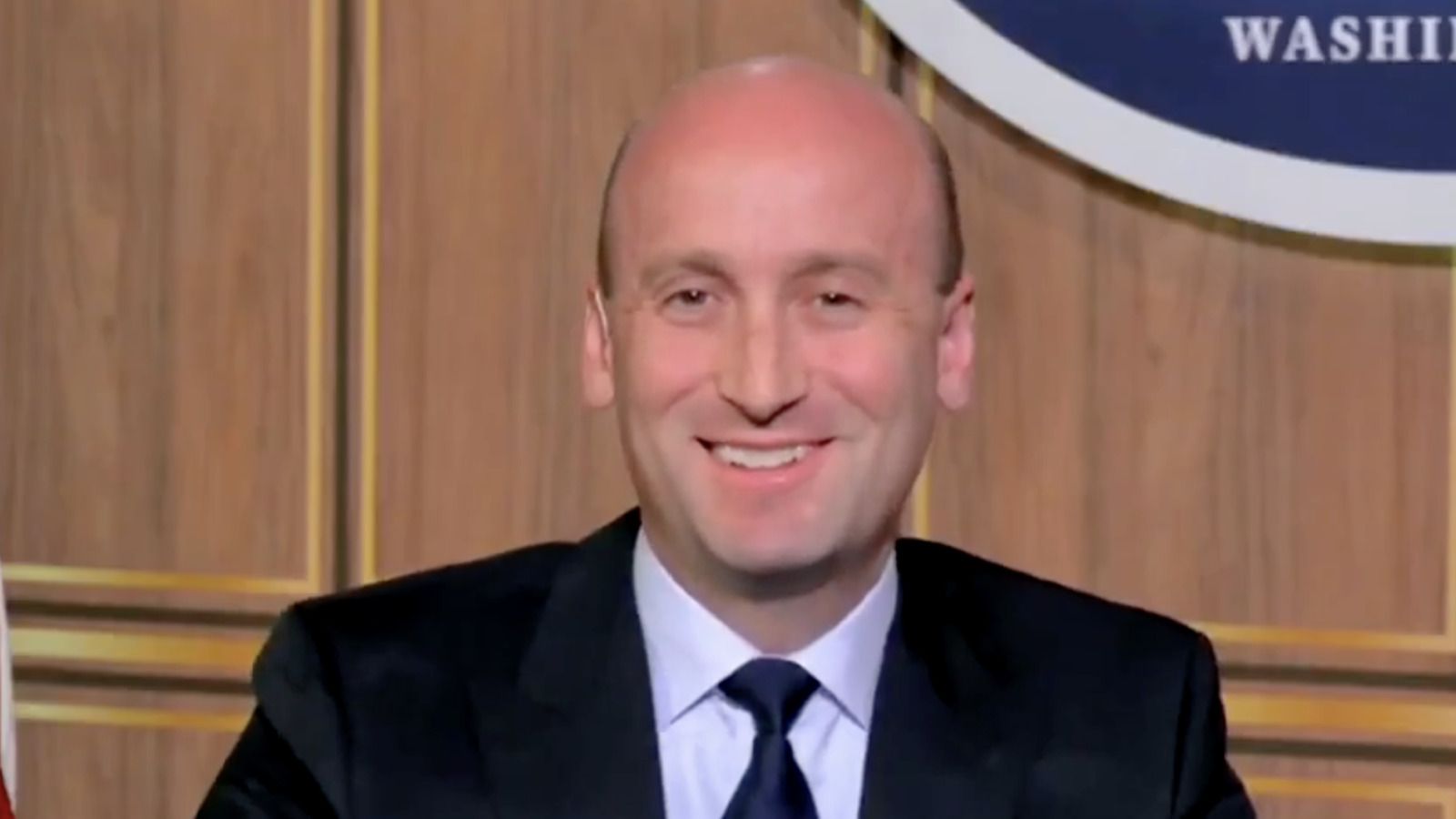Latest
Stephen Miller: White House “Actively Looking At” SUSPENDING Habeas Corpus

Stephen Miller recently hinted that the White House is exploring various legal measures in response to ongoing national concerns. Among the topics reportedly under discussion is the controversial idea of altering certain judicial procedures.
Whoa…
Stephen Miller just made a bold and controversial claim: the Trump administration is now openly considering suspending habeas corpus—a core element of due process—in order to speed up the deportation of illegal immigrants.
In an interview, Miller cited the U.S. Constitution, which allows for the suspension of habeas corpus during times of invasion. “The Constitution is clear,” he said. “The privilege of the writ of habeas corpus can be suspended at a time of invasion. So I would say that’s an action we’re actively looking at.” He added that whether this step will be taken “depends on whether the courts do the right thing or not.”
This means Trump could potentially move to suspend due process protections if he believes activist judges continue blocking his immigration policies.
When asked directly about the possibility, Miller pointed to a specific part of the Constitution and explained that immigration law already limits how much authority courts have over such cases. He referred to the Immigration and Nationality Act, a law passed by Congress that restricts judicial oversight—what he called “jurisdiction stripping”—especially in matters like Temporary Protected Status (TPS).
According to Miller, when Secretary Kristi Noem ended TPS for certain undocumented migrants, courts had no legal standing to intervene. He accused judges who did so of overstepping their authority—not just against the executive branch, but also against the legislative branch. “Radical rogue judges,” as he put it, are undermining laws passed by Congress itself.
For context, habeas corpus is a centuries-old legal safeguard that prevents people from being imprisoned without cause. It ensures that anyone detained must be brought before a judge, who decides whether their detention is lawful. It’s a cornerstone of legal rights in the U.S., embedded in the Constitution, and can only be suspended in extreme situations—like rebellion or invasion.
Historically, habeas corpus has only been suspended four times in U.S. history: during the Civil War, in postwar South Carolina, in the Philippines during an early 20th-century insurrection, and in Hawaii after the Pearl Harbor attack.
Now, Miller argues that the country is under a new kind of “invasion”—not from a foreign army, but from waves of undocumented migrants—and that this threat could justify taking drastic constitutional steps.
Earlier this year, Trump used a similar argument to invoke the Alien Enemies Act, aiming to quickly deport alleged members of the Venezuelan gang Tren de Aragua with little or no court oversight.
Whether this is legal, politically viable, or even remotely realistic remains to be seen—but one thing is clear: talk of suspending habeas corpus puts the stakes of the immigration debate at a whole new level.
Scroll down to leave a comment and share your thoughts.
-

 Latest7 months ago
Latest7 months ago𝗔𝗹𝗹 𝗼𝗳 𝘁𝗵𝗲 𝗻𝗮𝗺𝗲𝘀 𝗺𝗲𝗻𝘁𝗶𝗼𝗻𝗲𝗱 𝗶𝗻 𝘁𝗵𝗲 𝗻𝗲𝘄 𝗝𝗲𝗳𝗳𝗿𝗲𝘆 𝗘𝗽𝘀𝘁𝗲𝗶𝗻 𝗱𝗼𝗰𝘂𝗺𝗲𝗻𝘁𝘀.
-

 Latest10 months ago
Latest10 months agoParis Hilton and Kanye Connected? “They Held Me Down, Spread My Legs…” [WARNING: Graphic]
-

 Latest8 months ago
Latest8 months agoHistoric Verdict Rocks America — Donald Trump Officially Convicted in a Turning Point No One Saw Coming
-

 Latest10 months ago
Latest10 months agoAlex Jones Exposes What’s Going On With Dan Bongino
-

 Latest7 months ago
Latest7 months agoProminent Republican Politician SWITCHES To Democrat Party
-

 Latest7 months ago
Latest7 months agoBREAKING: Supreme Court Responds to Gov. Greg Abbott’s Emergency Petition to REMOVE Runaway Democrat Leader
-

 Latest7 months ago
Latest7 months agoBOMBSHELL: President Trump Confirms Joe Biden Dead Since 2020!
-

 Latest8 months ago
Latest8 months agoBREAKING: President Trump drops a new message for America — and it changes everything.
